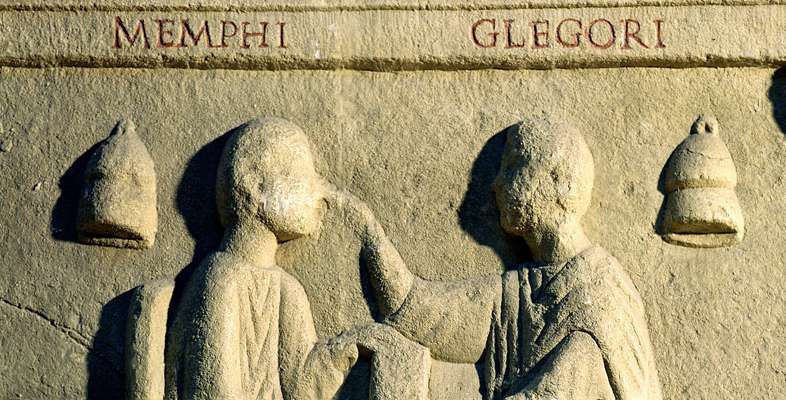What did being healthy in ancient Rome or Greece look like? How can you tell what wellbeing meant in ancient times? This free course, Health and wellbeing in the ancient world, will help you investigate the health of people in ancient Greece and Rome, using both literary and archaeological evidence to uncover details of real life in ancient societies.
This course is designed to challenge simplistic approaches which apply modern distinctions to the ancient world. Instead, you'll go back to the start and look at the primary evidence on which all modern assumptions are based. You'll examine different objects closely, learning what each item can tell us about life in ancient times.
On the course, you'll divide the body up into organs and systems, using each as a starting point to explore ancient theories of the structure and function of the human body, and other aspects of ancient life.
You'll discover ancient Greece and Rome in full, from the public to the personal, and from army and urban life to the lived experience of women and children. Using evidence on the hair and face, the eyes, the digestive system, the organs of reproduction and the feet, you'll explore topics with which society still wrestles, including the location of the 'self'; the relationship between mind and body; identity; food and drink; sanitation; sexuality, ageing and gender.
There are no special requirements for this course, but an interest in the ancient world or classical studies might be useful.
By enrolling on this course you can track your progress and gain a Statement of Participation for completing the whole course.
The Open University would really appreciate a few minutes of your time to tell us about yourself and your expectations for the course. We welcome your feedback and suggestions to improve the experience for other learners.
This course is also available to study on FutureLearn 326, where you have the opportunity to purchase a FutureLearn certificate on completion.
Course learning outcomes
After studying this course, you should be able to:
- feel confident in exploring the variety of fields that constitute classical studies
- critically analyse primary sources
- engage with contemporary interpretations and scholarly debates
- explore and be familiar with open-access resources for classical studies
- analyse complex problems based on fragmentary evidence.
First Published: 24/01/2017
Updated: 01/04/2020
